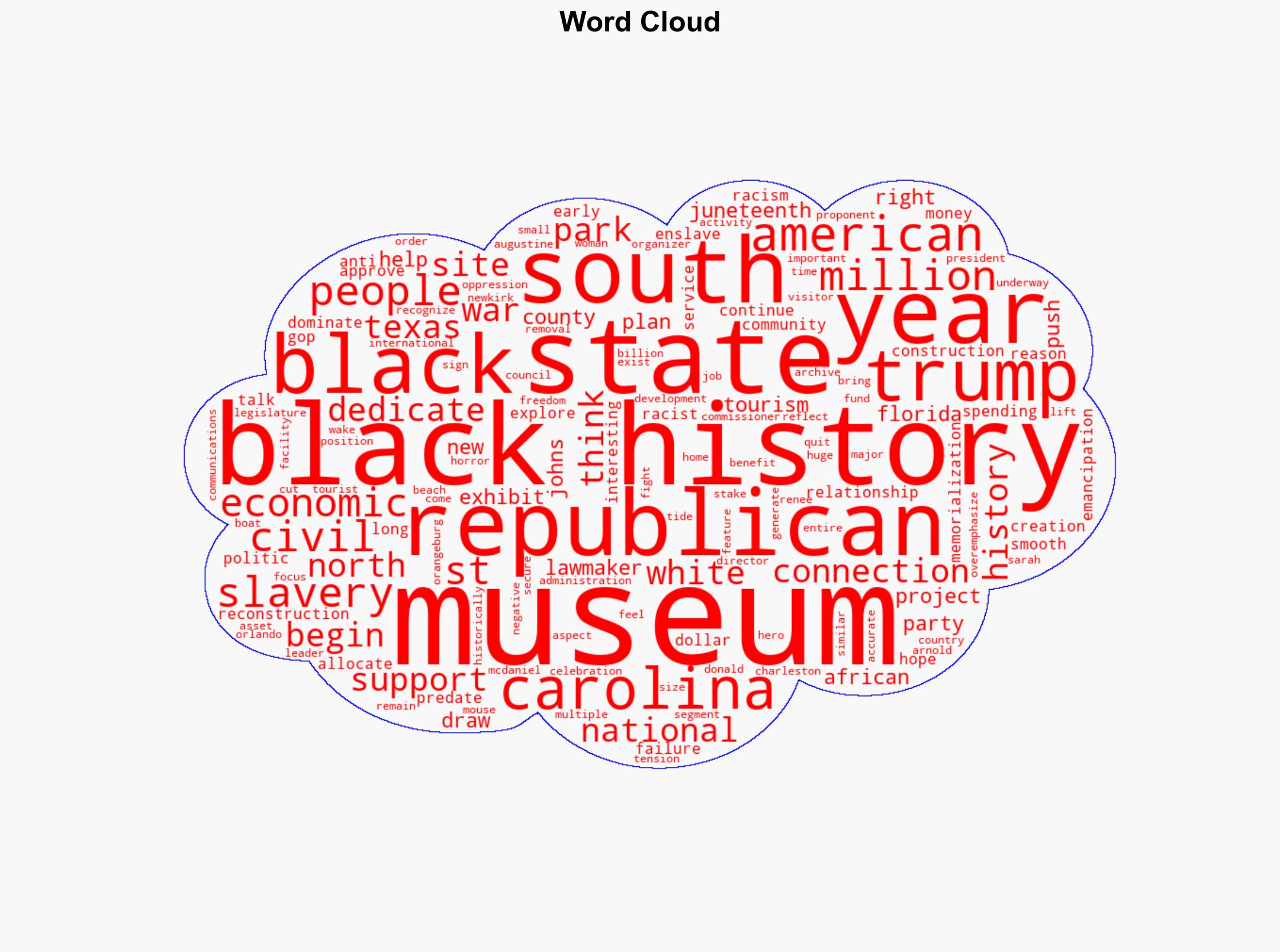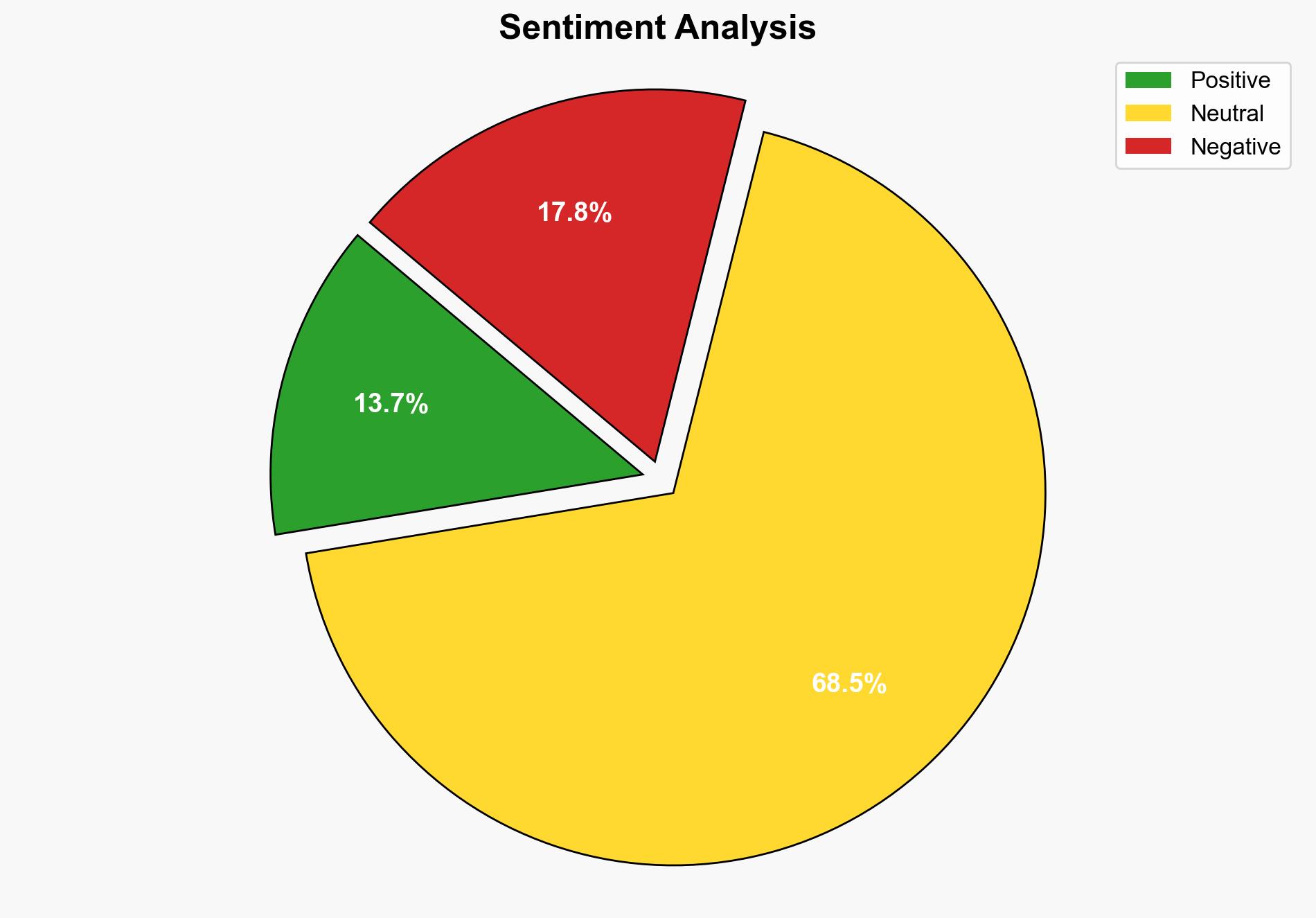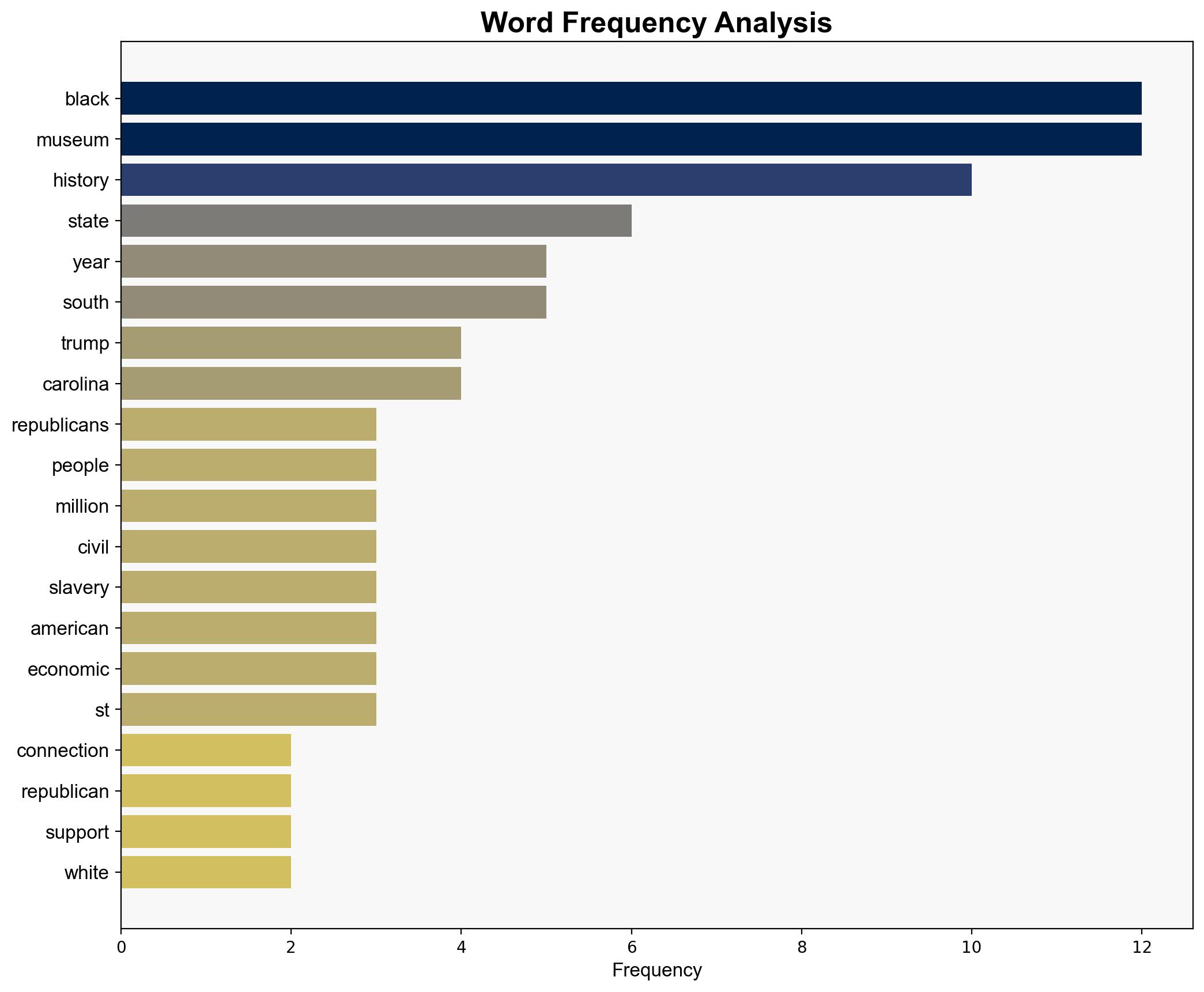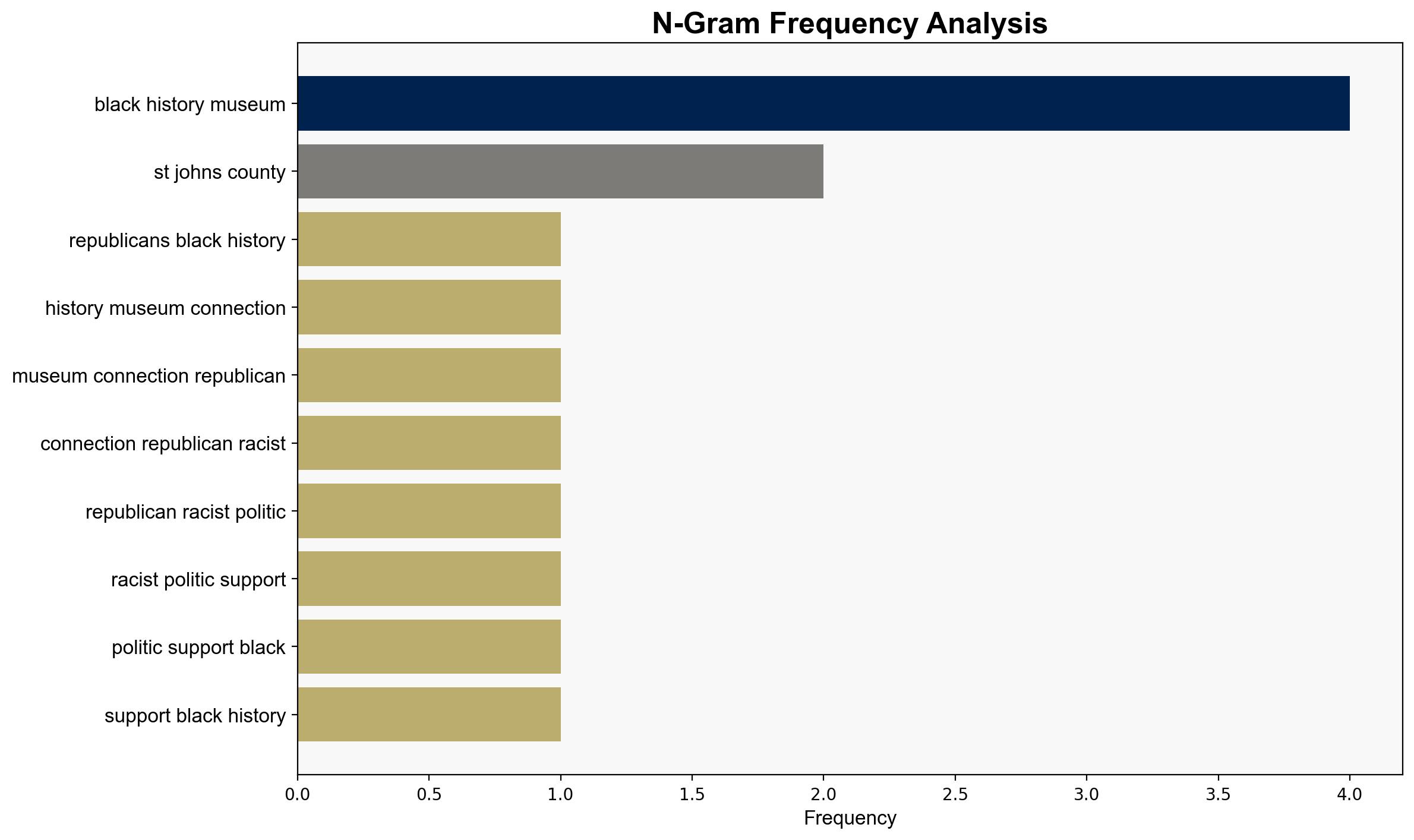Republicans and Black History Museums – Lawyersgunsmoneyblog.com
Published on: 2025-11-11
AI-powered OSINT brief from verified open sources. Automated NLP signal extraction with human verification. See our Methodology and Why WorldWideWatchers.
Intelligence Report: Republicans and Black History Museums – Lawyersgunsmoneyblog.com
1. BLUF (Bottom Line Up Front)
The strategic judgment is that the Republican support for Black history museums is primarily driven by economic incentives and a desire to improve relations with the Black community, with a moderate confidence level. The most supported hypothesis is that this support is a pragmatic approach to economic development and political optics rather than a genuine shift in ideological stance. Recommended action includes monitoring the implementation of these projects for consistency with stated goals and assessing their impact on Republican-Black community relations.
2. Competing Hypotheses
Hypothesis 1: Republicans support Black history museums primarily for economic development and tourism benefits. This hypothesis is supported by evidence of significant financial investments in museum projects and statements from local officials highlighting economic benefits.
Hypothesis 2: Republicans are using support for Black history museums to improve political optics and relationships with the Black community. This is suggested by the timing of these initiatives and the broader political context of racial tensions and historical narratives.
The first hypothesis is more likely due to the tangible economic benefits and historical precedence of using cultural projects for economic gain, whereas the second hypothesis, while plausible, lacks direct evidence of a coordinated political strategy.
3. Key Assumptions and Red Flags
Assumptions: It is assumed that economic development is a primary motivator for these projects and that there is a genuine interest in improving relations with the Black community.
Red Flags: Potential bias in interpreting Republican motives, given historical tensions over racial issues. Deception indicators include the possibility of overstating the commitment to Black history for political gain without substantial follow-through.
4. Implications and Strategic Risks
Potential implications include shifts in voter demographics and perceptions of the Republican Party among Black voters. Strategic risks involve the possibility of backlash if these projects are perceived as insincere or if they fail to deliver promised economic benefits. Escalation scenarios could involve increased political polarization if these initiatives are seen as tokenistic or if they exacerbate existing racial tensions.
5. Recommendations and Outlook
- Monitor the progress and implementation of these museum projects to ensure alignment with stated goals and assess their impact on community relations.
- Engage with local stakeholders and community leaders to gauge perceptions and address concerns proactively.
- Best-case scenario: Successful museum projects lead to economic growth and improved Republican-Black community relations.
- Worst-case scenario: Projects are perceived as insincere, leading to increased racial tensions and political backlash.
- Most-likely scenario: Mixed outcomes with some economic benefits but limited impact on broader political dynamics.
6. Key Individuals and Entities
Sarah Arnold (St. Johns County Commissioner), Renee McDaniel Newkirk (Communications Director, African American Tourism Council), Donald Trump (Former President).
7. Thematic Tags
National Security Threats, Political Strategy, Economic Development, Racial Relations
Structured Analytic Techniques Applied
- Cognitive Bias Stress Test: Expose and correct potential biases in assessments through red-teaming and structured challenge.
- Bayesian Scenario Modeling: Use probabilistic forecasting for conflict trajectories or escalation likelihood.
- Network Influence Mapping: Map relationships between state and non-state actors for impact estimation.
Explore more:
National Security Threats Briefs ·
Daily Summary ·
Methodology





